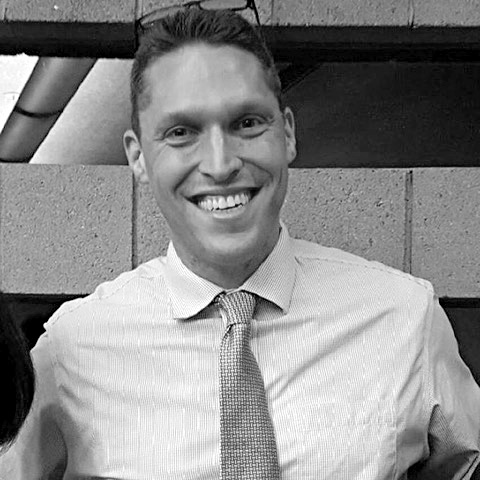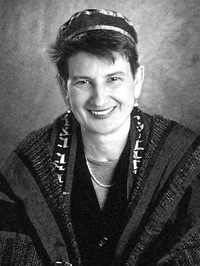 Photo from Max Pixel
Photo from Max Pixel PARSHA: MISHPATIM, EXODUS 22: 20-23
“You shall not wrong a stranger or oppress him, for you were strangers in the land of Egypt. You shall not ill-treat any widow or orphan. If you do mistreat them, I will heed their outcry as soon as they cry out to Me, and My anger shall blaze forth and I will put you to the sword, and your own wives shall become widows and your children orphans.”
Rabbi Shmuly Yanklowitz
Uri L’Tzedek: Orthodox Social Justice

There is perhaps no teaching more essential to Judaism than the ethical imperative to protect the rights and secure the needs of the stranger, the widow and the orphan. Throughout history, societies that called themselves civilized would marginalize these people, often ensuring a systemic lack of access to legal, financial and social protections. The vitality and everlasting relevance of the Jewish moral paradigm is that we refuse to overlook these individuals. Rather, we embrace them, seek them out and hold them close.
God instructs us that to be religious people, we must make the marginalized — rather than the elite — our priority. To be faithful is to orient our lives around the needs of the most vulnerable. While the stranger, widow and orphan are specified throughout Jewish holy texts, we can understand them conceptually as well as literally: these mitzvot apply to all who are marginalized, alienated, oppressed and suffering.
We often think of “observant Jews” as those who adhere to the most rituals. We ought to stop assessing observance with such stringency. Instead, we should think of those who are kind, morally reflective and working to alleviate the plight of others as “observant Jews,” for they uphold and preserve the most crucial axioms of Torah. When we talk about the abused, the poor and the sick, these populations aren’t often part of the broader community conversation. This has to change.
Rabbi Daniel Bouskila
Sephardic Educational Center

Rabbi Jonathan Sacks teaches: “The great crimes of humanity have been committed against the stranger, the outsider, the one-not-like-us.”
As a Sephardic Jew who grew up in Ashkenazi day schools, I know what it’s like to be “the one-not-like-us.” My pronunciation of Hebrew was mocked, my parents’ customs were called “exotic” and I was continuously called a “Black Jew.” To this day, so-called “fellow Jews” comment on my “dark Sephardic look,” my “Arab” style of prayer, and my “colorful” customs. In certain segments of the Jewish community, I am often made to feel like “the Sephardic stranger,” that “different Jew.”
Wherever there is injustice or prejudice, Jews always take to the streets in protest. Whether it’s fair wages for employees, civil rights for minorities, immigration rights for newcomers or human rights for those seeking political asylum, Jews are always at the forefront of the struggle. I only wish we could apply that same passion for social justice, equality and inclusion toward those within our Jewish community who — because of ethnic background, skin color or sexual orientation — are often excluded and treated as “strangers and outsiders.” Justice, after all, begins at home.
In the words of Rabbi Sacks, “The best way of curing hostility to strangers is to remember that we, too — from someone else’s perspective — are strangers.” We’ve done a great job curing this hostility on a global level. It’s time we do so at home, in our own communities.
Rabbi Erez Sherman
Sinai Temple

As a recently bereaved brother, I learned quickly that even a rabbi needs a rabbi in times of need. Over the past four months of reciting the Kaddish daily, I discovered that my rabbis are my congregants in the daily minyan. People who sit shivah, are in shloshim, are in a year of mourning, or observing a yahrzeit. We each recite the same words but we each have different stories to tell.
While Torah explicitly prohibits causing distress to an orphan and widow, Rashi includes in this prohibition all downtrodden individuals. Sefer Hachinuch teaches that the widow and orphan are championed because they have no one else to cry out to but God. Yet, those who are not suffering put their trust in other human beings, often removing the Divine presence in their lives.
The prophet Zechariah calls the Jews assirei tikvah, prisoners of hope. The Torah understands that at our most vulnerable we must be coddled, embraced and loved. For it is then that we may live out the prophetic vision. I am witness to this act of kindness each day. While no human being is exempt from one day walking through the valley of the shadow, we thankfully are also witness to the light of our tradition, commanding us to pave a path of comfort actively for those in need.
Rabbi Lisa Edwards
Beth Chayim Chadashim

Among the most valuable lessons my beloved third-grade teacher taught me was not in the lesson plans. Whenever she saw any of her students tease or bully another, her nostrils would flare, and she would shout, “Stop and think! How would you feel?” She’d trained us well — the room would fall silent, the (mis)behavior would stop, we all thought about and felt what had happened, the “oppressor” would apologize to the “oppressed,” and we went back to work (or recess).
Despite Judaism’s insistence that we not anthropomorphize God, this passage from Exodus gives God a mouth, ears, a nose and the righteous indignation of my third-grade teacher.
The “I” in this passage is God; God is speaking and God hears: “I will heed their outcry as soon as they cry out to Me.” The nose of God is less apparent, but “My anger shall blaze forth” includes the Hebrew word api (aleph-pei-yod), which can also mean “my nostril” — God’s nostrils will flare in anger. Picture a fire-breathing dragon defending its treasure … or my third-grade teacher protecting her young charges.
God’s teaching starts tenderly, asking us to feel what another might feel, and thereby improve our behavior: “you were strangers/sojourners” (23:9 adds, “you know the soul of the sojourner …”). Yet within moments, even without witnessing an actual act of oppression, God’s fury is kindled, simply imagining what some men of privilege might be inclined to do to the vulnerable.
“Stop and think! How would you feel?”
Rabbi Sarah Barukh
Cedars-Sinai Medical Center

These verses offer a straightforward theology in which God heeds the cry of the suffering and punishes those who cause pain.
In my work as a hospital chaplain, I encounter people who use this theology as a resource to make sense of their own suffering. They experience comfort in understanding God as an active player who responds to human actions and needs. The majority of my visits, however, are with patients or families who struggle with this idea, their faith fraying as they try to understand. Where is the God who hears the cry of the oppressed? Why do bad things happen to good people?
Our tradition has many answers to these eternal questions and Parashat Mishpatim presents one potential response. All wrestle with one of life’s most challenging spiritual tasks: the quest to find meaning in the shared human experience of pain and suffering.
I have found that jumping to provide a single answer to such big questions is rarely comforting — for me or others. In this case, the tradition certainly provides a variety of thoughts, but more importantly, it models a method of engagement. The multitude of voices highlights a willingness to explore, try on or even refute different responses to suffering and gives us room to do the same. Sharing in this process with someone can be healing in and of itself. For the one seeking to understand, it can offer opportunities for deeper understanding, spiritual growth and healing.























 More news and opinions than at a Shabbat dinner, right in your inbox.
More news and opinions than at a Shabbat dinner, right in your inbox.